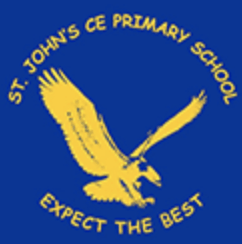
Science
THE PRIMARY KNOWLEDGE CURRICULUM
St John's are following the PKC scheme of work for Science, giving opportunities for cross-curricular links and ensuring progression of skills and knowledge.
RATIONALE
High-quality science education provides the foundations for understanding the world through the specific disciplines of biology, chemistry and physics. Science has changed our lives and is vital to the world’s future prosperity, and all pupils will be taught essential aspects of the knowledge, methods, processes and uses of science. Through building up a body of key foundational knowledge and concepts, pupils will be encouraged to recognise the power of rational explanation and develop a sense of excitement and curiosity about natural phenomena. They will be encouraged to understand how science can be used to explain what is occurring, predict how things will behave, and analyse causes.
The Science curriculum will give children an introduction to fascinating content such as the inner workings of the human body, animals and the environments they live in, plants and their features, forces in nature, what lies beyond the visible and what lies beyond the planet we live on. Over time their knowledge will deepen moving from recognising and naming parts of the human body to understanding how our muscles work, how our blood moves around our body and how our nervous system helps us to interact with the world.
Pupils will be encouraged to use the knowledge they learn in Science and apply it to investigations that test a theory or set out to answer a question. Importantly, substantive scientific knowledge is taught first, before pupils are asked to undertake enquiry. This helps them to fully understand the elements of the enquiry first, and to make informed observations about the processes they see. Gathering information, recording data, graphing data and interpreting findings are all essential skills that pupils will apply to new contexts as they work through the curriculum. Enquiries include observing over time, pattern seeking, identifying, classifying and grouping, comparative and fair testing and researching using secondary sources. Scientific enquiries provide children with a wealth of opportunities, but first and foremost they will help to deepen understanding of the nature, processes and methods of science as a discipline and how it differs from other subjects they are studying. Pupils will gain an understanding of the purpose and uses of science both today and in the future.
AIMS
The national curriculum for science aims to ensure that all pupils:
- develop scientific knowledge and conceptual understanding through the specific disciplines of biology, chemistry and physics
- develop understanding of the nature, processes and methods of science through different types of science enquiries that help them to answer scientific questions about the world around them
- are equipped with the scientific knowledge required to understand the uses and implications of science, today and for the future
TEACHING AND LEARNING
Our science curriculum builds knowledge incrementally. Pupils have multiple opportunities to secure and build on their knowledge and understanding as subject content is revisited at points throughout the curriculum. This helps children to master the knowledge and concepts whilst building up an extended specialist vocabulary. This incremental approach helps teachers to identify knowledge gaps and look back at previous content if they need to close gaps in knowledge or understanding. Our curriculum enables children to understand the important role that science plays in the sustainability of life on earth. We want children following this curriculum to be equipped to go forth into their secondary education with curiosity, passion and a desire for discovery.
INTENDED OUTCOMES
Key stage 1
By the end of Key Stage 1 pupils should be helped to:
- asking simple questions and recognising that they can be answered in different ways
- observing closely, using simple equipment
- performing simple tests
- identifying and classifying
- using their observations and ideas to suggest answers to questions
- gathering and recording data to help in answering questions
Key stage 2
By the end of Lower Key Stage 2 pupils should be helped to:
- asking relevant questions and using different types of scientific enquiries to answer them
- setting up simple practical enquiries, comparative and fair tests
- making systematic and careful observations and, where appropriate, taking accurate measurements using standard units, using a range of equipment, including thermometers and data loggers
- gathering, recording, classifying and presenting data in a variety of ways to help in answering questions
- recording findings using simple scientific language, drawings, labelled diagrams, keys, bar charts, and tables
- reporting on findings from enquiries, including oral and written explanations, displays or presentations of results and conclusions
- using results to draw simple conclusions, make predictions for new values, suggest improvements and raise further questions
- identifying differences, similarities or changes related to simple scientific ideas and processes
- using straightforward scientific evidence to answer questions or to support their findings.
By the end of Upper Key Stage 2 pupils should be helped to:
- planning different types of scientific enquiries to answer questions, including recognising and controlling variables where necessary
- taking measurements, using a range of scientific equipment, with increasing accuracy and precision, taking repeat readings when appropriate
- recording data and results of increasing complexity using scientific diagrams and labels, classification keys, tables, scatter graphs, bar and line graphs
- using test results to make predictions to set up further comparative and fair tests
- reporting and presenting findings from enquiries, including conclusions, causal relationships and explanations of and a degree of trust in results, in oral and written forms such as displays and other presentations
- identifying scientific evidence that has been used to support or refute ideas or arguments
